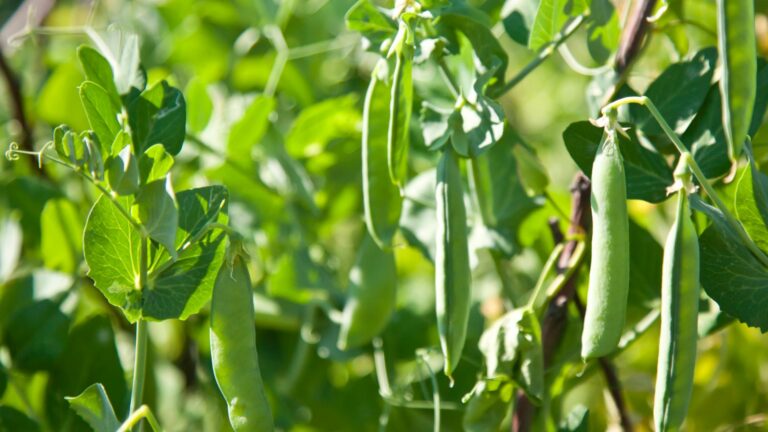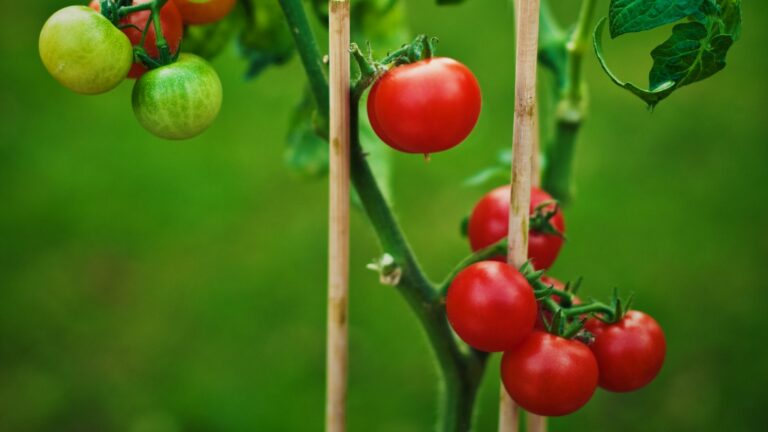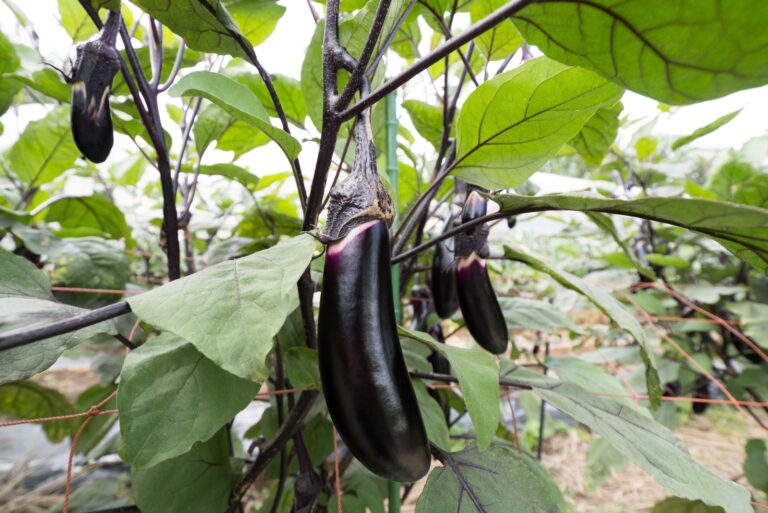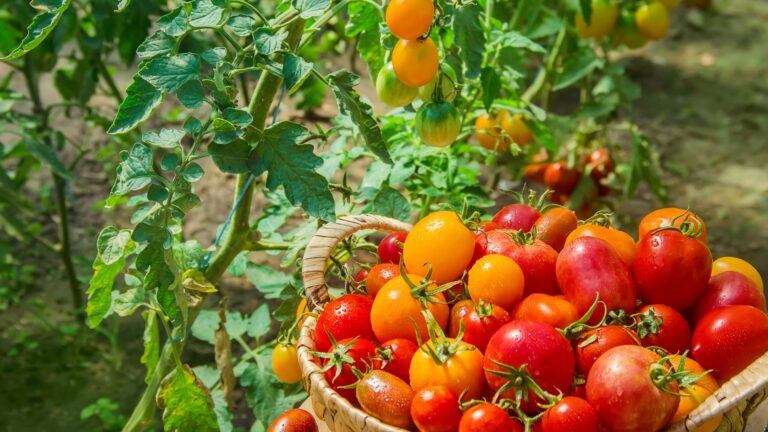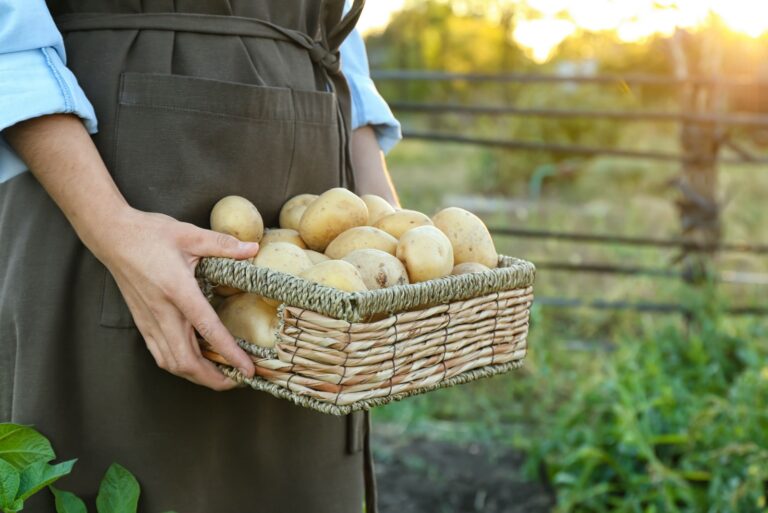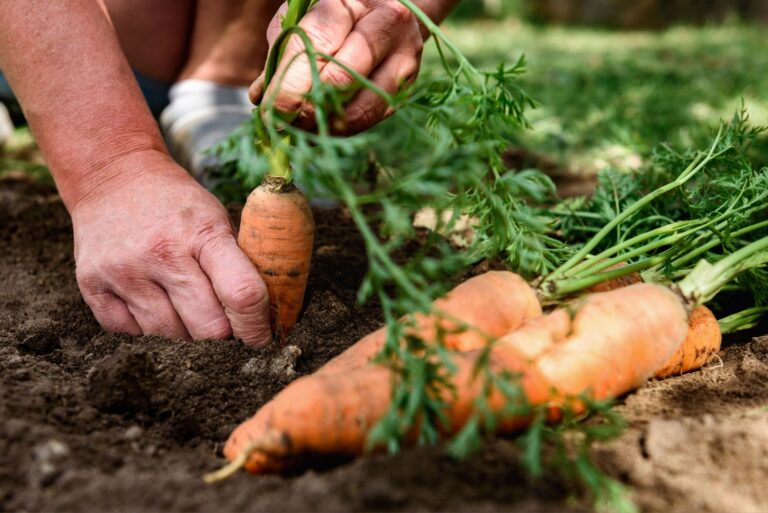Why Texas Gardeners Add This Pantry Ingredient To Their Winter Vegetable Beds
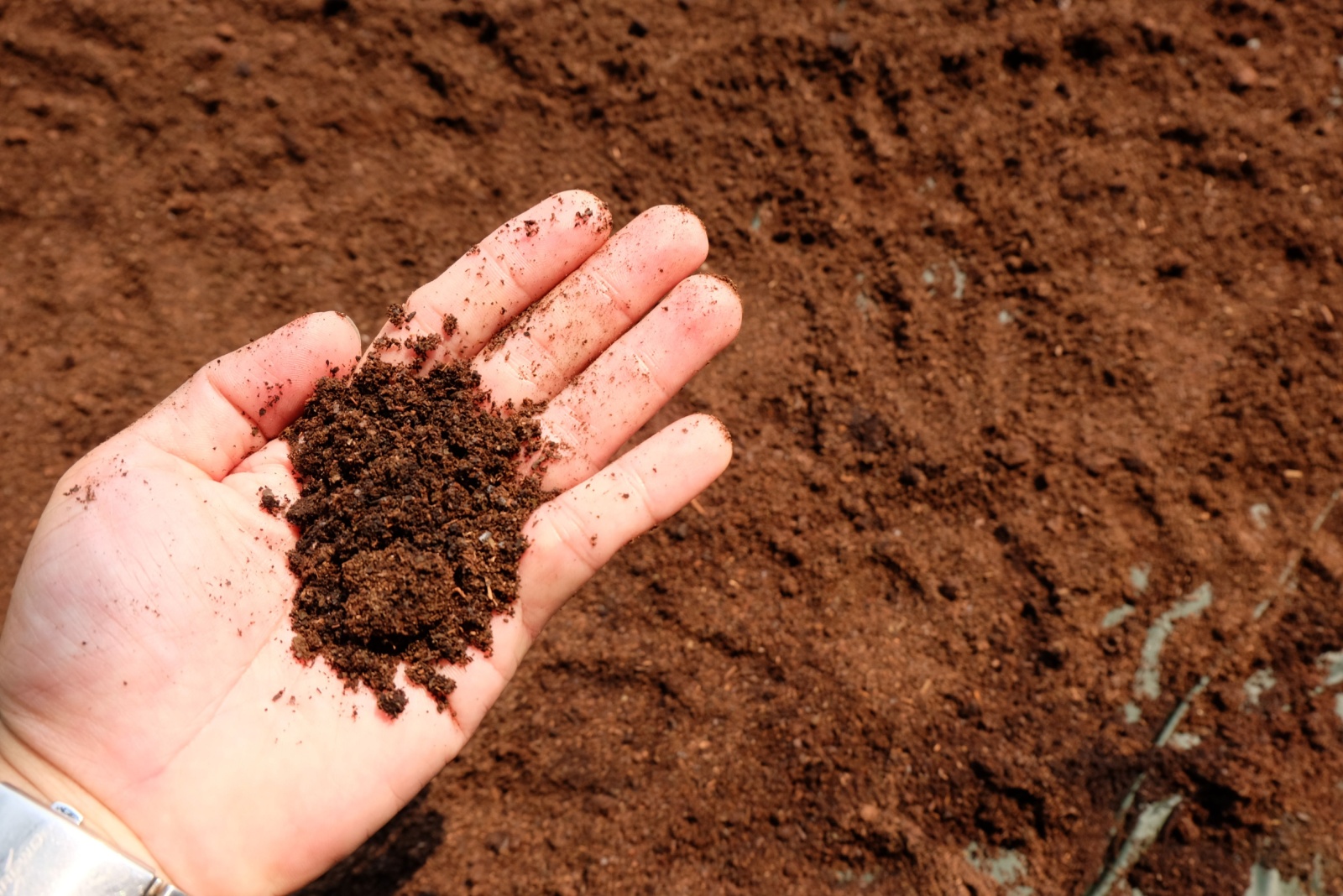
Winter may cool things down in Texas, but gardeners are still brewing up ways to keep their vegetable beds in top shape. Their favorite trick starts not in the shed but in the kitchen, with a scoop of leftover coffee grounds that work wonders once they hit the soil.
This simple pantry staple boosts structure, wakes up microbial life, and gives winter crops the steady nourishment they need to push through cold spells. With nothing more than yesterday’s grounds, Texas gardeners turn their winter beds into rich, productive plots that keep right on giving.
Natural Nitrogen Boost For Leafy Greens
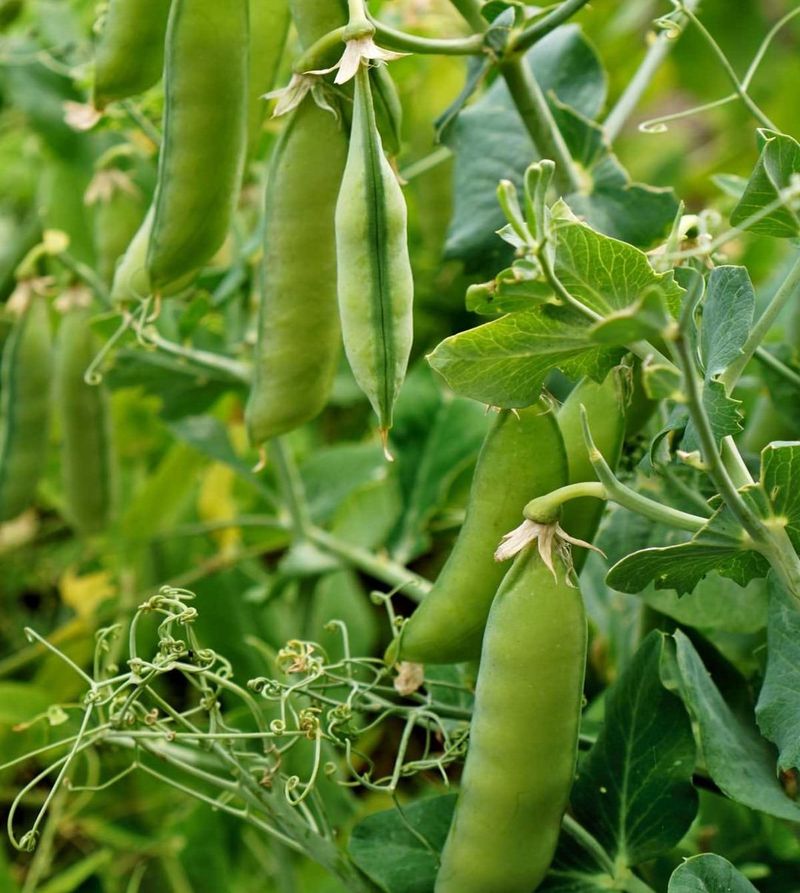
Leafy vegetables like spinach, kale, and lettuce crave nitrogen to develop those deep green leaves you want on your dinner plate. Coffee grounds contain about 2% nitrogen, which releases slowly as they break down in soil.
When you mix grounds into your vegetable beds before planting winter greens, you create a steady nitrogen supply throughout the growing season.
Plants absorb this nutrient gradually, avoiding the burn that chemical fertilizers sometimes cause. Your greens grow lusher and tastier with this gentle feeding method.
Improves Clay Soil Structure Common In Texas
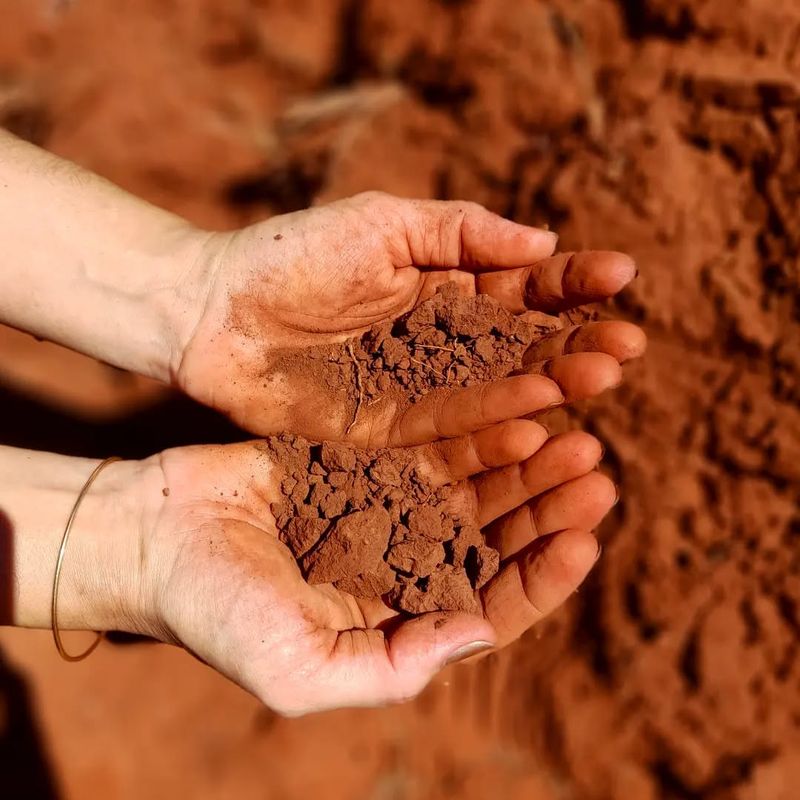
Many Texas gardens struggle with heavy clay soil that drains poorly and suffocates plant roots during wet winter months. Adding coffee grounds helps break up these dense particles and creates air pockets that roots desperately need.
The organic matter in grounds acts like tiny sponges, holding moisture when soil dries out but improving drainage when rain falls.
Over time, regular applications transform stubborn clay into workable garden soil. Your winter vegetables develop stronger root systems in this improved environment.
Attracts Beneficial Earthworms To Garden Beds
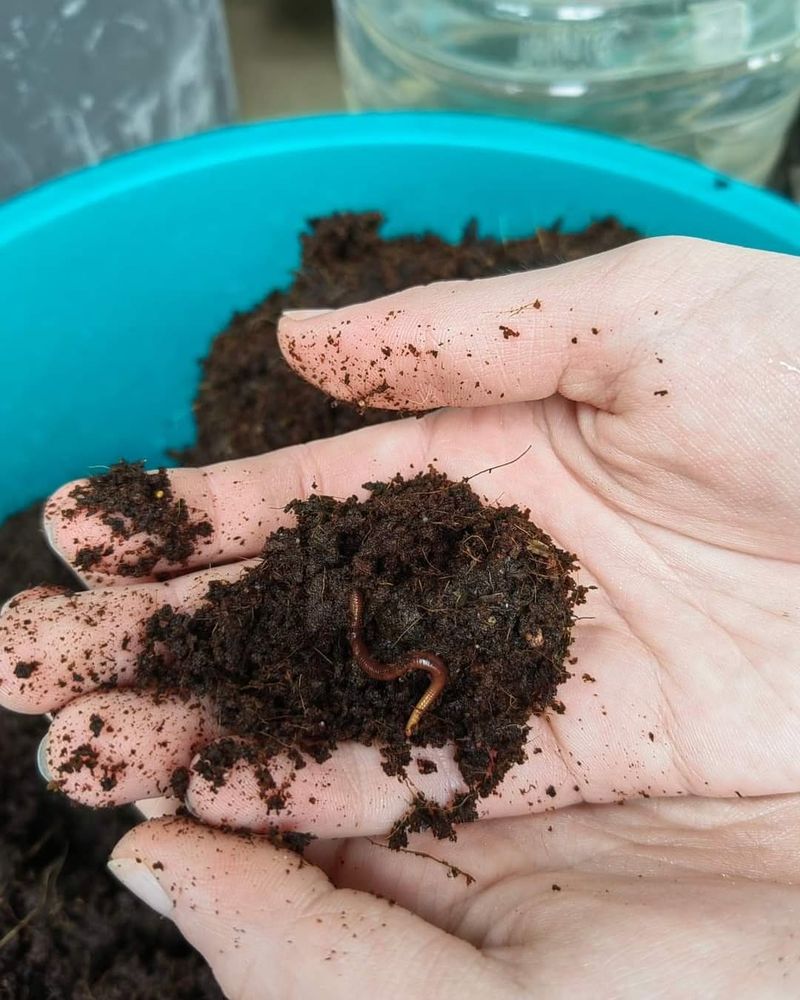
Earthworms absolutely love coffee grounds and will travel from neighboring areas to feast on them in your garden beds. These helpful creatures tunnel through soil, creating pathways that allow water and air to reach plant roots more easily.
As worms digest grounds and soil together, they produce castings that work like supercharged fertilizer for vegetables.
A thriving worm population means healthier soil structure and better nutrient availability. Winter vegetables grown in worm-rich soil show noticeably stronger growth and disease resistance.
Deters Common Garden Pests Naturally
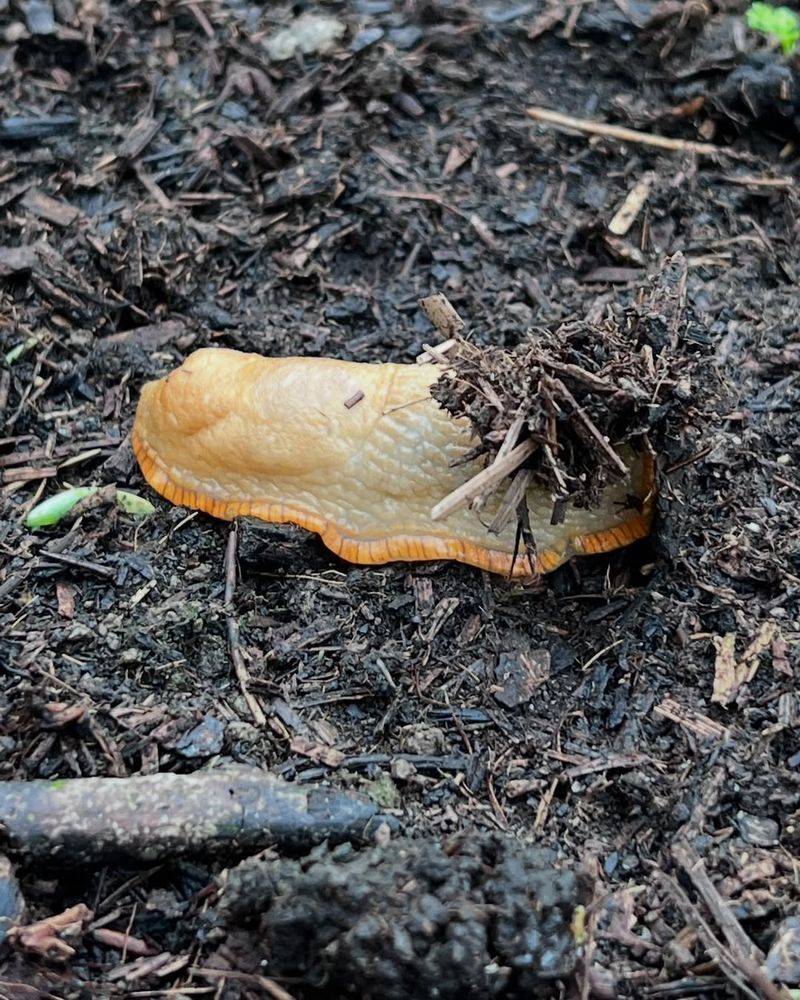
Slugs, snails, and certain insects dislike crossing over the gritty texture of coffee grounds scattered around plant stems. The caffeine content also acts as a natural deterrent that these pests find unpleasant or even toxic in larger amounts.
Creating a barrier of grounds around your winter cabbage, broccoli, and carrots protects them without harsh chemicals.
You can reapply after heavy rains wash the grounds into the soil. This simple method keeps pest damage minimal while staying completely safe for your family and pets.
Adds Essential Organic Matter Affordably
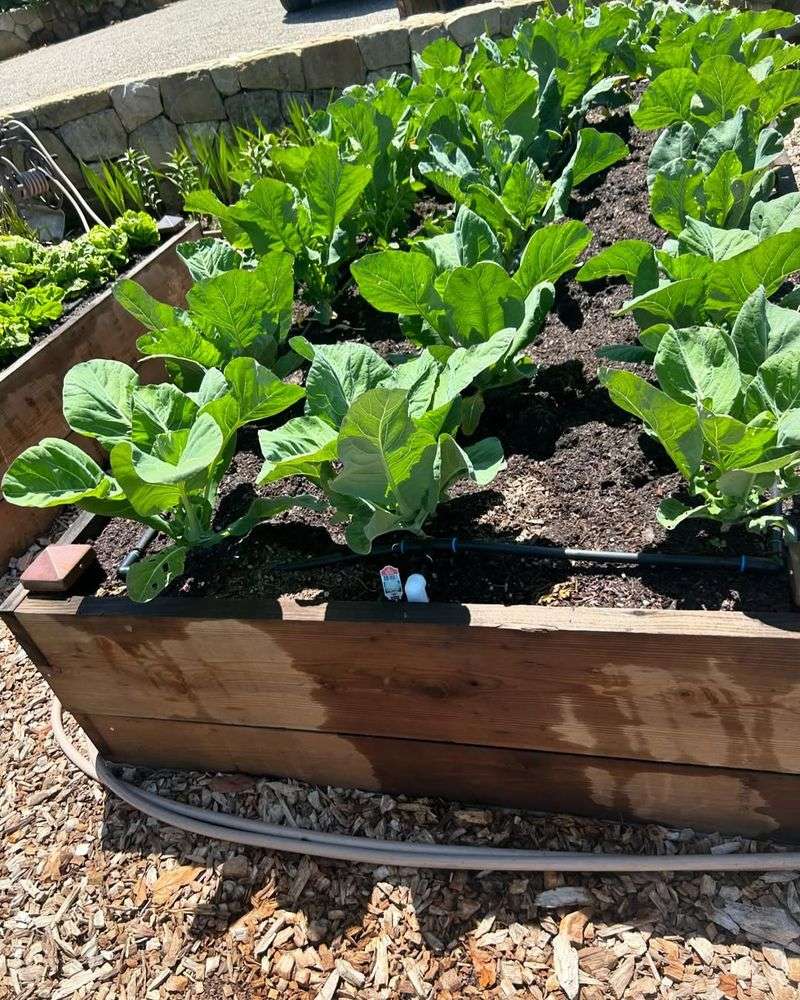
Building healthy soil requires adding organic matter regularly, but compost and commercial amendments can get expensive for larger garden spaces.
Coffee grounds offer a completely free alternative that you generate naturally if you brew coffee at home. Local coffee shops often give away their used grounds by the bagful to gardeners who ask.
This steady supply costs nothing but provides the same soil-building benefits as products you would buy at garden centers. Texas gardeners on any budget can improve their winter beds without spending extra money.
Balances Alkaline Soil pH Levels
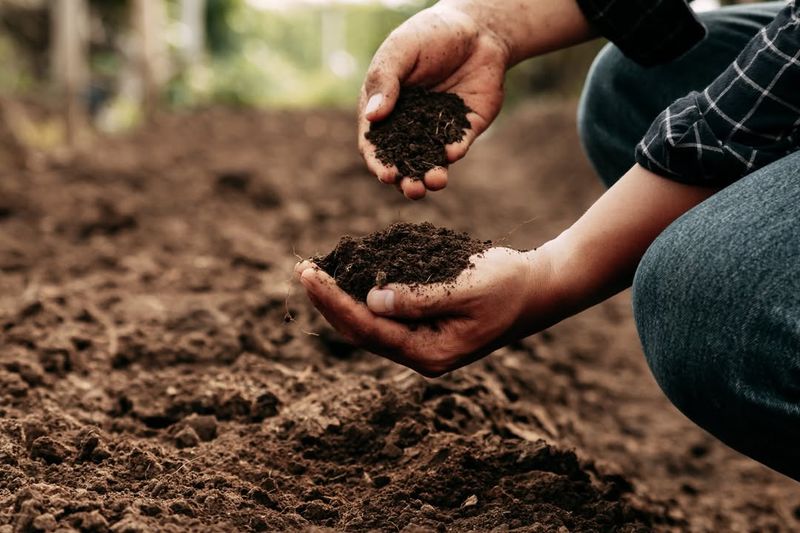
Many areas of Texas have naturally alkaline soil with high pH levels that lock up nutrients and prevent vegetables from absorbing what they need. Used coffee grounds are slightly acidic, which helps nudge pH toward the neutral range most vegetables prefer.
While grounds alone will not dramatically change pH, regular applications over time create gradual improvements.
Vegetables like tomatoes, peppers, and carrots grow better when soil pH sits between 6.0 and 7.0. Your winter crops access nutrients more efficiently in properly balanced soil.
Provides Trace Minerals For Plant Health
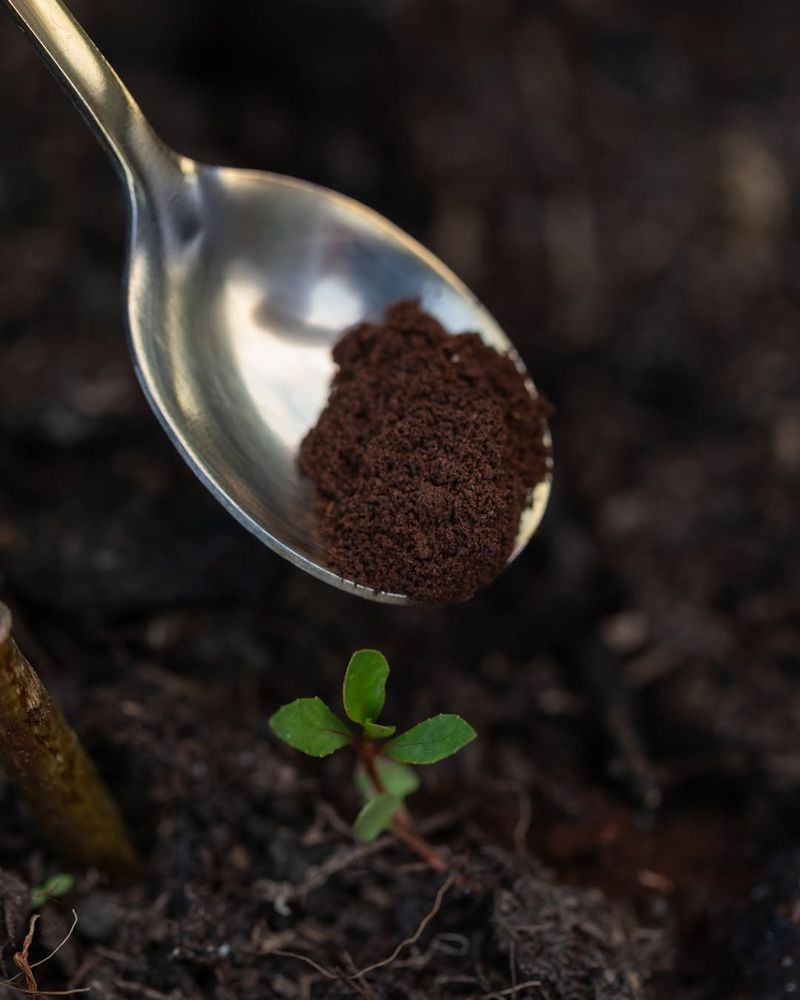
Beyond nitrogen, coffee grounds contain small amounts of potassium, magnesium, and other trace minerals that vegetables need for complete nutrition. Plants use potassium to develop strong stems and disease resistance, while magnesium plays a key role in photosynthesis.
These minerals become available as grounds decompose throughout the winter growing season. While not a complete fertilizer replacement, grounds supplement other nutrients you add to beds.
Your vegetables benefit from this diverse mineral profile, producing healthier leaves, stems, and roots that support better harvests.
Suppresses Certain Soil-Borne Diseases
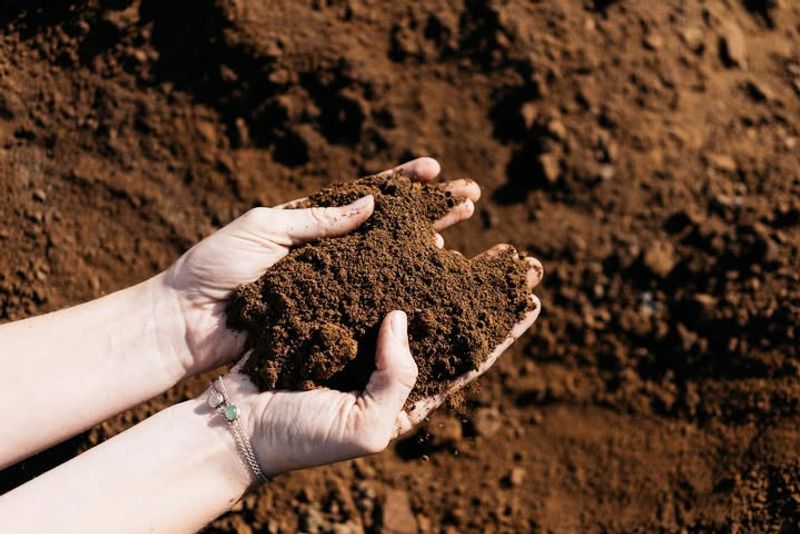
Research suggests that coffee grounds may help suppress some harmful fungi and bacteria that cause plant diseases in garden soil. The compounds in coffee create an environment where beneficial microbes thrive while certain pathogens struggle to establish themselves.
Winter gardens often face disease pressure from cool, damp conditions that favor fungal growth. Adding grounds to your beds provides an extra layer of natural protection.
While not a cure-all, this benefit combines with proper spacing and drainage to keep your vegetables healthier throughout the season.
Reduces Water Needs During Dry Spells
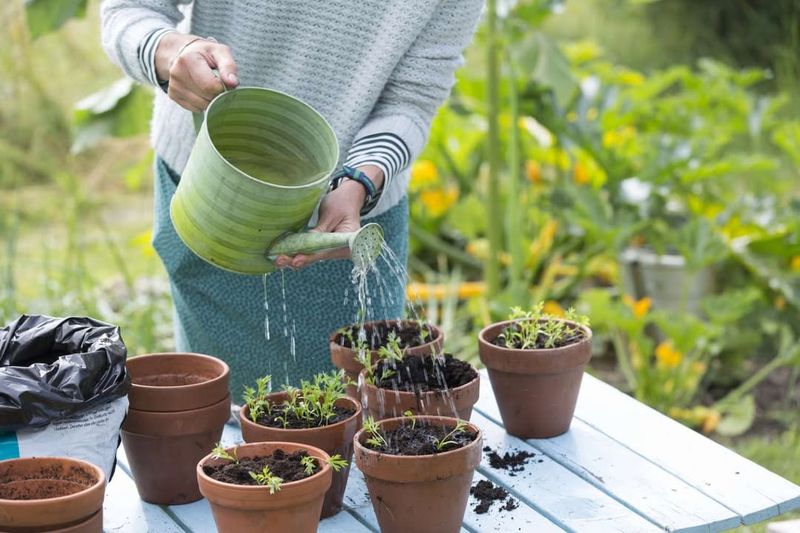
Texas winters can bring unpredictable dry periods that stress vegetable plants and require frequent watering. Coffee grounds mixed into soil act like tiny reservoirs, absorbing water when available and releasing it slowly to plant roots.
This moisture-retention quality means you water less often while plants stay consistently hydrated. Gardens amended with grounds handle drought conditions better than unamended beds.
Your water bills stay lower, and vegetables experience less stress from fluctuating moisture levels that can affect growth and flavor.
Speeds Up Compost Pile Decomposition
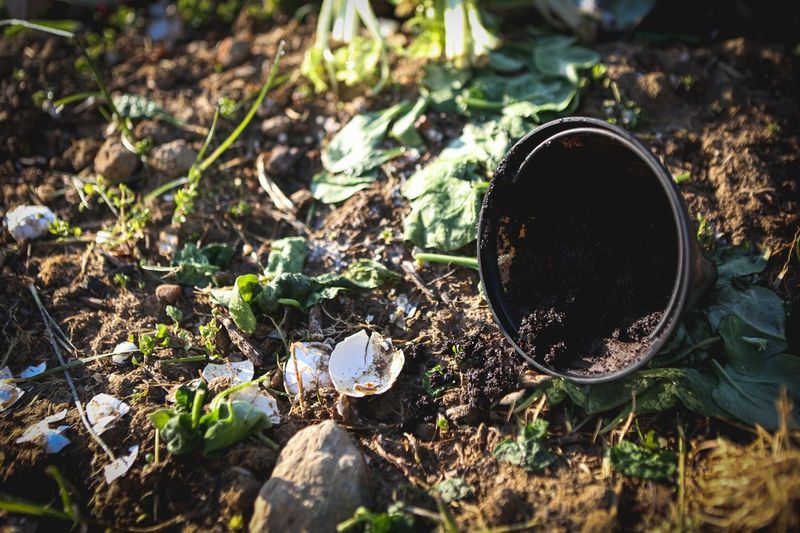
Adding coffee grounds to your compost pile provides a nitrogen-rich green material that balances carbon-heavy browns like leaves and cardboard. This nitrogen boost feeds the microorganisms that break down organic matter, speeding up the entire composting process significantly.
Winter composting often slows down in cooler temperatures, but grounds help maintain activity even when thermometers drop.
The finished compost enriches your vegetable beds with perfectly balanced nutrients. You create a complete recycling system that turns kitchen waste into garden gold faster than traditional methods.
Creates Mulch Layer For Temperature Control
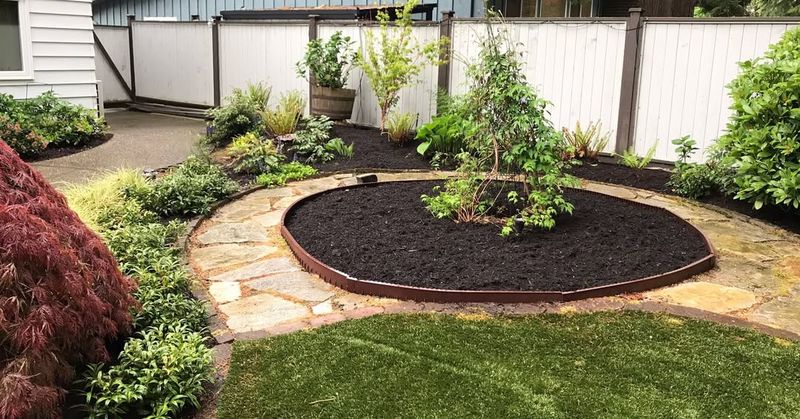
Spreading a thin layer of coffee grounds on top of soil creates a protective mulch that insulates plant roots from temperature swings during Texas winters. This barrier keeps soil warmer on cold nights and cooler during unseasonably warm days.
Stable soil temperatures help vegetables grow more consistently without stress from fluctuating conditions.
The dark color of grounds also absorbs solar heat during the day, warming the root zone naturally. As grounds gradually decompose, they add nutrients while continuing to protect your winter crops from temperature extremes.
Environmentally Friendly Waste Reduction
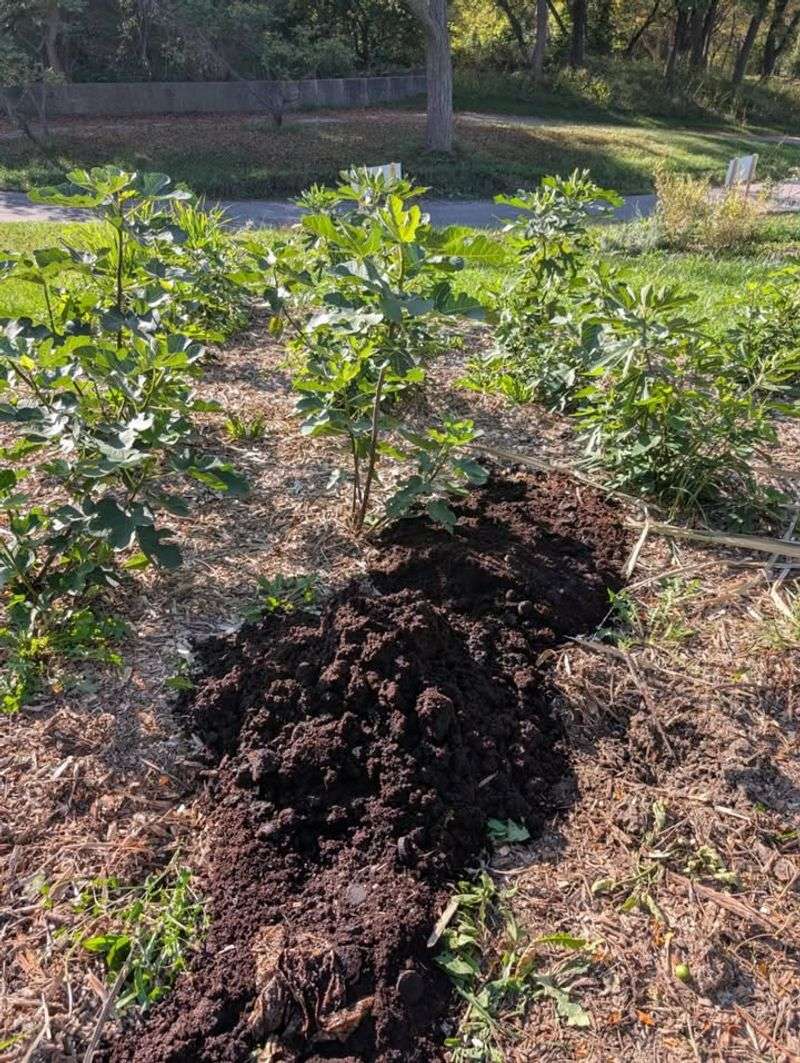
Americans throw away millions of pounds of coffee grounds annually, sending this valuable resource to landfills where it produces methane gas as it decomposes. Using grounds in your garden diverts waste from the trash stream while improving your growing environment simultaneously.
This simple act of recycling reduces your household waste and carbon footprint without any extra effort. Texas gardeners who embrace this practice contribute to environmental sustainability while growing healthier winter vegetables.
You transform what was garbage into garden treasure, proving that small choices make meaningful differences.

